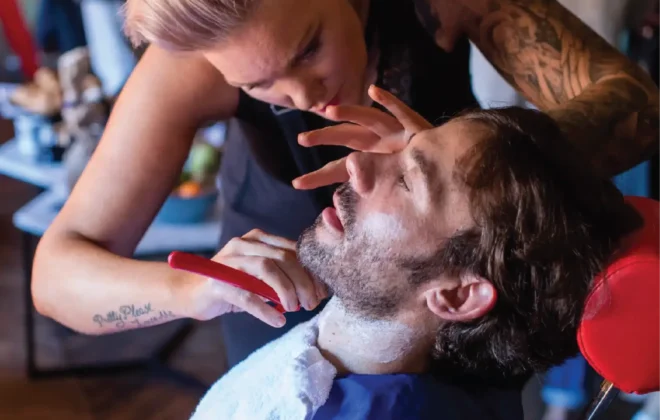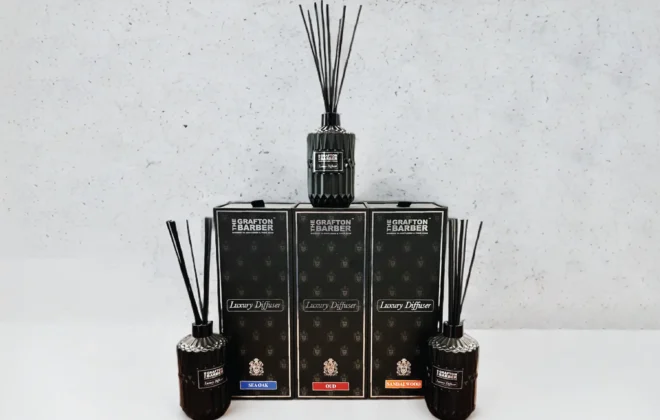How Quality Sleep Enhances Your Skin, Hair, and Overall Well-Being
Sleep isn’t just a time for rest—it’s a vital process that plays a huge role in your overall health, skin, and hair. While we all know the importance of getting enough sleep for feeling rested, there’s much more to it than that. Sleep affects everything from how your skin looks to how your body recovers after a long day.
Let’s dive into how it influences your body and why it’s crucial for maintaining healthy skin, hair, and overall wellness.
1. The Skin Repair Process During Sleep
Your skin works hard to repair itself while you sleep. As your body enters the deeper stages of sleep, your skin goes into recovery mode, repairing damage from UV rays, pollutants, and everyday stress.
How it works:
- Your body boosts collagen production, which helps improve skin elasticity and reduces the appearance of wrinkles.
- Growth hormones are released, promoting cell regeneration, which aids in the healing of acne, scars, and other skin imperfections.
- Cortisol levels are reduced, a hormone that increases when you’re stressed and can cause skin issues like breakouts and inflammation.
Pro tip: Aim for 7-9 hours to give your skin the optimal time it needs for healing and rejuvenation.
2. Your Hair Growth Cycle
Just like your skin, your hair also benefits from a good night’s kip. When you’re well-rested, your hair follicles are more likely to remain in their growth phase, resulting in thicker, stronger hair.
How it works:
- The circulation of blood to the scalp is increased which promotes healthy hair follicles.
- Growth hormones are released, stimulating hair growth and reducing hair thinning or hair loss.
- Poor rest disrupts this cycle and can contribute to hair loss or slower hair growth.
Pro tip: To support hair growth, try to maintain a regular schedule to ensure your body gets enough restorative rest for hair regeneration.
3. Your Immune System & Link to Overall Health
Sleep is essential for maintaining a healthy immune system, which in turn impacts your skin and hair. When you’re sleep-deprived, your body’s ability to fight off infections is weakened, which can manifest as skin issues, dull hair, or fatigue.
How it works:
- During sleep, your immune system strengthens by releasing proteins called cytokines that fight off infections and inflammation.
- Adequate sleep helps reduce the risk of chronic illnesses, such as heart disease, diabetes, and obesity, all of which can affect the appearance of your skin and hair.
- Sleep also helps to reduce inflammation, which is crucial for preventing acne, eczema, and other inflammatory skin conditions.
Pro tip: Consistent, quality rest helps keep your immune system strong and supports your body’s natural repair processes, promoting overall health.
4. Sleep & Mental Health: The Ripple Effect on Your Skin & Hair
Getting enough shut eye has a profound impact on your mental health, which can affect your skin and hair. Stress and anxiety can lead to issues like breakouts, hair thinning, or increased wrinkles. On the other hand, proper sleep helps manage stress and supports a healthier, calmer mindset.
How it works:
- Sleep reduces levels of the stress hormone cortisol, which is often linked to acne flare-ups and hair loss.
- A well-rested mind is better equipped to handle stress, which in turn can help prevent skin problems and hair thinning caused by anxiety.
- Sleep also helps to balance your mood, making you feel more relaxed and less prone to emotional eating or picking at your skin.
Pro tip: Create a relaxing bedtime routine to reduce stress and improve sleep quality, which will have a positive impact on your mental health and appearance.
5. Sleep and Hydration: The Skin & Hair Connection
Your body goes into hydration-replenishing mode while you sleep, meaning your skin and hair are benefiting from this process as well. If you aren’t sleeping enough, your skin can become dry, and your hair can lose its shine and vitality.
How it works:
- Sleep allows your body to repair and replenish water levels, leaving your skin plump and hydrated.
- Hydrated skin is more resilient to wrinkles, dryness, and irritation, while hydrated hair looks shinier and is less prone to breakage.
- Dehydration from poor sleep can lead to dull, dry skin and limp, lifeless hair.
Pro tip: Drink a glass of water before bed to help your body stay hydrated throughout the night, and wake up with refreshed skin and hair.
Final Thoughts: Prioritise it for Healthier Skin & Hair
Sleep is an essential part of overall health, and its benefits for your skin and hair are undeniable. Whether it’s repairing your skin, promoting hair growth, or boosting your immune system, getting enough quality sleep is the foundation of a healthy, glowing appearance.
Aim to create a consistent sleep routine, manage stress, and hydrate well to reap the benefits of restful nights and radiant skin and hair. Check out our blog for more tips!




